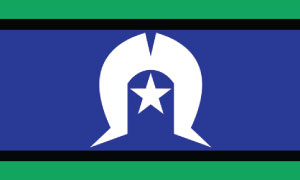Privacy Policy
Purpose and Policy statement
The Privacy Act 1988 (Cth) (Privacy Act) requires entities bound by the Australian Privacy Principles (APPs) to have a Privacy Policy. This Privacy Policy explains how Community Legal Centres Australia (CLCs Australia) manages personal information that is collected via our Website or as a result of the provision and use of our services.
We will update this Privacy Policy whenever our information handling practices change and publish any changes on our Website.
The specific legal obligations of CLCs Australia when collecting and handling personal information are outlined in the Privacy Act, the APPs, and any other applicable state or territory privacy laws.
What is personal information?
Personal information means information or an opinion about an identified individual, or an individual who is reasonably identifiable, whether the information or opinion is true or not, and whether the information or opinion is recorded in a material form or not.
Sensitive information means information or an opinion about an individual’s health, racial or ethnic origin, sexual orientation, political opinions, membership of a political association, religious beliefs or affiliations, philosophical beliefs, membership of a professional or trade association, membership of a trade union, or criminal record.
What kinds of personal information does CLCs Australia collect?
As the community legal sector’s national peak body, CLCs Australia collects and uses personal information in the course of providing its services to its member community legal centres (Centres) and the wider legal assistance community.
The type of personal information we collect may include (but is not limited to):
- names and date of birth;
- contact details, such as home and email addresses, and telephone numbers;
- information about personal circumstances;
- information about an individual’s background;
- bank details (which may be held by a contracted third party service provider);
- photographs; and
- web analytics, such as Internet Protocol (IP) addresses and device, type, operating system, and browser information.
Where we collect sensitive information, we do so only with the consent of the individual and as long as it is provided voluntarily. The only exception is if it is otherwise authorised by the law. An individual may withdraw consent for CLCs Australia to retain their personal information at any time.
When we receive unsolicited personal information (being information we have not taken active steps to collect), we will decide within a reasonable period whether we can collect it under the APPs. If we determine that we cannot collect the personal information, we will destroy or de-identify it as soon as practicable. Alternatively, if we determine that we could not have collected the personal information but need to retain it to provide our services, we will deal with this personal information in accordance with our obligations under the APPs.
How does CLCs Australia collect personal information?
At all times we endeavour to collect only the personal information that is necessary for carrying out the function or activity with which we are engaged.
We collect personal information directly
- by inviting individuals to provide personal information through feedback and subscription forms;
- when contacted by telephone or through correspondence by individuals;
- in administering and performing any contracts with service providers; and
- through our recruitment process when an individual applies for a position of employment at CLCs Australia. This includes secondees from various corporate law firms, or interns from our partnership with Western Sydney University.
We collect personal information indirectly through our communication channels, including our annual Sector Survey, our portal for member organisations www.clcs.powerappsportals.com (User Portal) and our public website, www.clcs.org.au (Website). The Website may collect information in a number of ways, including through:
- Cookies: small data files recording information about a website visit, transferred onto computers and stored on a hard drive (persistent cookies) or in memory (session cookies).
- Website Statistics: CLCs Australia makes a record of a site visit and logs the user’s server address, top level domain name, data and time of site visit, pages accessed and documents downloaded, the previous site visited and the type of browser used.
- Email Management: recording the email address of a website user if they send CLCs Australia a message, register for any of the website’s interactive tools, or sign up for newsletters and online-e-bulletin.
- Google Analytics: CLCs Australia uses Google Analytics to inform and optimise content for our Website based on past uses and visits. Google Analytics informs us how visitors browse our Website, helping us to improve our Website functionality and allow easier access to information. Google also receives this information when individuals browse our Website and other websites on the Google Display Network using remarketing. To opt-out of the Google Display Network and or Google Analytics an individual can use ad settings or install the Google Analytics Opt-out Browser Add-on to disable tracking.
Personal information is also collected through the:
- National Insurance Scheme, where the process of renewals often involves collecting the names of staff from Centres, peaks and associations;
- National Accreditation Scheme (NAS), where personal contact details may be provided to deliver national implementation and update the NAS Portal;
- National Conference, where personal information about attendees, speakers and sponsors is gathered and stored;
- National Dataset, using the Community Legal Assistance Service System (CLASS) to enter client and service data; and
- Our internal SharePoint system, the ‘Advocacy Hub’, which assists us in collecting personal information required to prepare reports and submissions for advocacy and law reform.
This Privacy Policy does not apply to information collected by any third party, including through any application or content (including advertising) that may link to or be accessible from or on the Website.
Why does CLCs Australia collect and hold personal information?
We collect, hold and use personal information to:
- provide our goods and services, including the Website and User Portal;
- manage and administer those goods and services, including account keeping procedures;
- provide facilities to members and partners so that they can provide services;
- communicate with an individual about, including (but not limited to), the services sought or a matter;
- send promotional information in relation to webinars, events, employment opportunities and services provided by CLCs Australia, the state peaks and Centres;
- comply with legal and regulatory obligations;
- consider applications for employment;
- otherwise manage our business; and
- any other purpose reasonably related to the purpose for which we have collected the personal information.
We may collect, hold and use personal information for other purposes with individual consent.
How does CLCs Australia secure personal information?
CLCs Australia secures the personal information it has collected through its internal SharePoint system and with the assistance of our service providers. All personal information we collect through our engagement with state and territory peak bodies, associations and Centres is stored in our ‘Customer Relationship Manager’ software (CRM Software). This includes the email and mailing lists we use to communicate with our members and other individuals and associated bodies within the community legal sector.
We restrict access to personal information by limiting access to personal information to only those who need access to the personal information to do their job. Physical, electronic and managerial procedures have been employed to safeguard the security and integrity of personal information.
We will destroy or de-identify personal information once it is no longer needed for a valid purpose or required to be kept by law.
The safety and security of your personal information may also depend on you. If you set up an account in our User Portal or elsewhere, then you are responsible for keeping your account password confidential.
How does CLCs Australia use or disclose personal information?
At all times we will only use or disclose the personal information we have collected where necessary for carrying out the function or activity with which we are engaged. We do not share, sell or otherwise disclose personal information for purposes other than as outlined in this Privacy Policy.
CLCs Australia uses personal information to communicate to its members and Centres through various newsletters and an online e-bulletin. When we publish law reform articles drafted by a Centre, we will also publish the name of the individual who authored the article.
CLCs Australia engages several social networking services, such as Facebook, Twitter and LinkedIn, to communicate with the public and our members about our work. CLCs Australia employees serve as administrative persons for each social networking channel. The social networking services will handle the personal information gathered during this process, as they have their own privacy policies.
CLCs Australia’s Website uses and discloses personal information in various ways, including its:
- Jobs Board, which may include the names and contact details of those managing the recruitment process;
- About Us page, which includes the names and photos of all staff and board members of CLCs Australia; and
- User Portal, which contains previous webinars and conference materials, and any personal information contained within.
CLCs Australia uses a number of external service providers to perform various functions and to whom we may have to disclose the personal information of staff, secondees and interns, including LexisNexis.
Where practicable and reasonable, CLCs Australia protects the personal information we disclose to service providers by entering into a contract or MOU which requires the service provider to only use or disclose the information for the purposes of the contract or MOU. If we disclose information to a third party, we generally require that the third party protect personal information to the same extent that we do.
CLCs Australia receives funding from the Commonwealth Government and state governments. It is a requirement of our funding agreements to provide deidentified data on behalf of community legal centres to Government.
How can you request access or corrections to your personal information or make a complaint?
If you have any queries or concerns about CLCs Australia’s Privacy Policy, wish to access or correct any personal information we may hold about you, or have any complaints about how we have handled your personal information, please contact us at the details set out below:
In rare circumstances, access may be denied to your personal information if CLCs Australia has a valid reason. Examples of a valid reason include where CLCs Australia reasonably believes:
- giving you access may endanger the life, health or safety of any individual, or endanger public health or safety;
- giving you access would have an unreasonable impact on the privacy of other individuals;
- your request is frivolous or vexatious;
- your personal information is part of existing or anticipated legal proceedings.
If CLCs Australia refuses you access to your personal information, we will inform you in writing of the reasons for refusing access.
If we receive a complaint from you about how we have handled your personal information we will determine what (if any) action we should take to resolve the complaint. We will tell you promptly that we have received your complaint and then respond to the complaint within 21 days.
If you are dissatisfied with the outcome of a complaint, you are entitled to contact the Office of the Australian Information Commissioner (OAIC) at www.oaic.gov.au and on 1300 363 992.
Governance, quality assurance and version history
|
Version history |
Version 1, dated 15 July 2024 |


